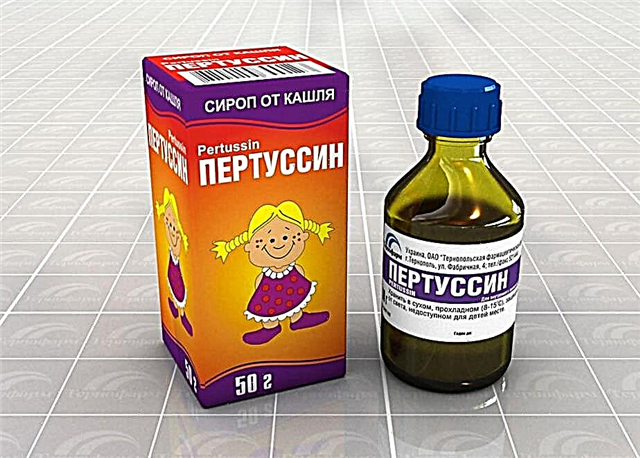A little about the current state of affairs
 Infectious disease doctors say that outbreaks of this insidious disease are periodic. Rise in incidence occurs at intervals of 5 or 6 years. It's no secret that in Russia over the past 2 years, the number of people who have had measles has increased. Until July 2017, 127 cases of the disease were registered, mainly in Moscow and Dagestan. The increase in the number of cases is associated with numerous refusals to vaccinate.
Infectious disease doctors say that outbreaks of this insidious disease are periodic. Rise in incidence occurs at intervals of 5 or 6 years. It's no secret that in Russia over the past 2 years, the number of people who have had measles has increased. Until July 2017, 127 cases of the disease were registered, mainly in Moscow and Dagestan. The increase in the number of cases is associated with numerous refusals to vaccinate.
In order to prevent measles from entering the country, 95% of its population must be vaccinated. The so-called herd immunity is created. It will also protect those for whom vaccination is contraindicated. And reducing vaccination coverage by only 5% triples the incidence!
A similar situation is observed not only in the Russian Federation. Suffering from measles and Europe. In Italy, France, Germany, Belgium, Austria, many cases of infection have been reported. Romania has the highest death rate among cases.
What you need to know about measles
Measles is a serious viral disease of childhood, the main manifestations of which are fever and rash. The measles virus is easily transmitted by airborne droplets. Only people get measles. He begins to secrete the virus 5 to 7 days before the first signs of the disease appear. After the symptoms disappear, the measles virus will be shed for another 4 to 5 days.
Measles is very easy to get sick! Even after a short meeting of an unvaccinated child with this virus, the chances of getting sick are more than 90%!
This disease can be very easy. An average week after infection, the child's body temperature rises to 38 - 39 degrees, and his health is disturbed. The kid is naughty, does not play, refuses to eat, tries to be in the arms of his mother. He develops severe weakness, cough, nasal discharge, his eyes turn red, and tearing appears. Such symptoms can be easily confused with the symptoms of a banal viral infection.
 After 2 - 3 days from the onset of the disease, when examining the child's oral cavity, one can find white spots on the mucous membranes of the cheeks. And after a while, a rash appears on the face, which spreads to the whole body in a day. With the appearance of a rash, the body temperature rises sharply, and then it becomes clear that the child has contracted measles. The rash persists for up to 7 days.
After 2 - 3 days from the onset of the disease, when examining the child's oral cavity, one can find white spots on the mucous membranes of the cheeks. And after a while, a rash appears on the face, which spreads to the whole body in a day. With the appearance of a rash, the body temperature rises sharply, and then it becomes clear that the child has contracted measles. The rash persists for up to 7 days.
No drugs have been developed to cure the disease. There are only those that will relieve the symptoms.
Only a timely vaccination can protect against measles. But the observance of banal hygiene rules: frequent hand washing, wearing masks, and so on are ineffective if the child lives in the territory of the outbreak of this disease.
Why measles is dangerous
At first glance, measles seems to be a fairly mild disease. Some opponents of vaccinations even believe that it is useful, as it hardens the child's body. And epidemics are a thing of the past because hygiene has improved.
The measles virus severely disrupts the baby's immunity. Protection against other, more severe infections is diminished. Because of this feature, dangerous complications often arise.
The immune system spends a lot of energy to defeat the disease and, in the end, is depleted. The child's body simply will not have the strength to withstand the dangerous complications that bacteria will cause. Under normal conditions, the baby would not get sick at all, but the strength is exhausted, and the body becomes defenseless.
More often, complications of measles occur in babies under five years of age, adolescents, the elderly, women at any stage of pregnancy. Among the consequences are the following:
- one out of ten children after measles will develop otitis media caused by dangerous bacteria and will permanently lose their hearing;
- one in ten people who get sick will develop severe diarrhea;
- 1 in 20 children who get sick will have pneumonia. Because of such a formidable complication, children die most often;
- one in a thousand develops severe viral brain damage, which is incurable and leads to complete immobility and mental retardation;
- one or two children out of a thousand who have had measles die.
Measles vaccination schedule
As you can see, measles is not such a harmless infection. In order to completely protect the child from the unpleasant and deplorable consequences of this disease, there is only one way - vaccination.
Up to six to nine months of life, the mother's antibodies will protect the baby from measles if she herself is vaccinated or has been ill in childhood. Children of this age are only vaccinated in exceptional cases. For example, if everyone in the family is infected with measles. This is done very rarely. In the future, vaccinations are given on schedule.
 According to the rules, the baby receives the first measles vaccination at one year. And already from the beginning of the 2nd week from the date of the vaccination, the body produces the amount of antibodies that is necessary to reliably protect the child from infection. Immunity can last up to 25 years.
According to the rules, the baby receives the first measles vaccination at one year. And already from the beginning of the 2nd week from the date of the vaccination, the body produces the amount of antibodies that is necessary to reliably protect the child from infection. Immunity can last up to 25 years.
It so happens that in 2 - 5% of vaccinated children, the immunity is insufficient, or short-lived due to a special reaction of the immune system or due to inadequate quality of the vaccine (unfortunately, this happens). Therefore, at the age of 6 - 7 years, the child undergoes revaccination against measles. It aims to protect children who have not developed immunity to the first vaccination. Immunity after revaccination is developed in 99% of children.
If a child who has not had measles and who has not been vaccinated has been in contact with a carrier of the infection or who is sick, the vaccine must be given within 72 hours of contact. So the likelihood of getting sick is less. When it comes to pregnant women, people with immunodeficiency and children under 12 months, immunoglobulin can be administered to protect them from infection.
In order for the baby to be completely protected from measles, it is imperative to be vaccinated according to the calendar - at 12 months, and then at 6 - 7 years.
Older people must have documents confirming the double vaccination. If there is no certainty of complete vaccination, then the level of antibodies to measles in the blood can be determined. If present, it is not worth getting vaccinated. In the absence of measles antibodies, it is recommended to deliver 2 doses of the vaccine with an interval of 1 month. Or you can just be vaccinated once. The minimum dose of the vaccine will not harm, but will raise the immune system.
What is measles vaccine? Types of vaccines
Dry (lyophilized) vaccines are used to prevent measles. They contain the measles virus in a live form, but it is not capable of causing disease (it will be non-pathogenic). These vaccines are called attenuated vaccines.
In Russia, a combined mumps-measles vaccine of its own production and a monovalent vaccine are used. The latter contains only the measles virus. The Priorix vaccine is produced in Belgium and additionally contains rubella and mumps viruses.
In the production of the Russian vaccine, the measles virus is grown on the cells of Japanese quail embryos, and the Belgian vaccine - on the cells of chicken embryos. This feature must be taken into account for people who are allergic to chicken eggs.
Also, vaccines are produced in India, USA, France. There is a vaccine that will immediately protect against measles, mumps, rubella, chickenpox, but it is not registered in Russia.
All vaccines come with a diluent. Storage is carried out in a refrigerator at a temperature of 2 - 8 degrees. The sun's rays can destroy the measles virus in the vaccine, so it comes in tinted glass vials.
If parents buy measles vaccine themselves in a pharmacy, they need to deliver it to the clinic as soon as possible in a special thermal container or in a thermos with ice so as not to violate the storage conditions.
How is measles vaccine done?
At 12 months old, the baby goes to the first measles vaccination. 2 weeks before vaccination, all contact with patients with acute respiratory and other infectious diseases should be excluded. If someone is sick in the family, it is better to postpone the vaccination for a while.
 When a child does not have chronic diseases, special preparation for vaccination is not required. If the baby has a concomitant pathology, the pediatrician will give recommendations on drugs and measures so that vaccination takes place with minimal side effects.
When a child does not have chronic diseases, special preparation for vaccination is not required. If the baby has a concomitant pathology, the pediatrician will give recommendations on drugs and measures so that vaccination takes place with minimal side effects.
Before the vaccination, the doctor will examine the child, measure the body temperature of the child, and educate parents about possible side effects and reactions to the vaccine. The examination data is entered into the outpatient card. If, according to the medical opinion, the baby is healthy, you can safely go to the vaccination room. Parents must complete an informed voluntary consent form prior to vaccination.
In the vaccination room, the nurse also fills out the necessary paperwork. Before opening the ampoule with the vaccine, she must check the expiration dates. The injection site (this is the outer shoulder or subscapular region) is treated with an antiseptic and 0.5 ml of the vaccine is injected subcutaneously or intramuscularly.
The measles virus contained in the vaccine loses its protective effect when exposed to alcohols and esters, so the skin at the injection site should dry out after treatment.
The vaccine is diluted just before setting. A pre-diluted vaccine, which was also stored at room temperature, cannot be injected - it will lose all its beneficial properties.
After the vaccination, the parents with the child should spend some time in the clinic.
Within 30 minutes after the injection, the baby should be under the supervision of a nurse, it is at this time that acute allergic reactions can develop. The vaccination room has all the necessary tools to help him in this situation.
After the vaccination, the child's immune system recognizes the measles virus, intensive production of antibodies begins - special immune cells that are able to neutralize the virus when they meet again. Antibodies will be found both in the blood and in the secretions of the mucous membranes of the nose and mouth. This is where the virus will penetrate first. By the end of the 2nd week after vaccination, the baby is already protected from the insidious disease.
 Often, measles vaccination coincides with the Mantoux test at 12 months of age. This combination is not dangerous for a child. According to the rules, the Mantoux test is carried out first. If it is negative, any vaccine can be administered. If Mantoux is not performed for any reason, then after vaccination it is done no earlier than 6 weeks later. Immediately after vaccination, there may be a false negative test result due to a decrease in sensitivity to tuberculin.
Often, measles vaccination coincides with the Mantoux test at 12 months of age. This combination is not dangerous for a child. According to the rules, the Mantoux test is carried out first. If it is negative, any vaccine can be administered. If Mantoux is not performed for any reason, then after vaccination it is done no earlier than 6 weeks later. Immediately after vaccination, there may be a false negative test result due to a decrease in sensitivity to tuberculin.
Measles vaccine reactions
After the vaccination, some unpleasant symptoms for the child may occur. They do not pose a health hazard and go away easily without treatment.
The child may complain of pain at the injection site or be capricious about it. This unpleasant symptom usually disappears by the end of the first day after vaccination.
 Since the vaccine contains a live virus, but not dangerous for the baby, on the 7th-12th day after vaccination, one of the six vaccinated children may have a temperature up to 39.4 degrees. The temperature decreases on its own within 24 hours.
Since the vaccine contains a live virus, but not dangerous for the baby, on the 7th-12th day after vaccination, one of the six vaccinated children may have a temperature up to 39.4 degrees. The temperature decreases on its own within 24 hours.
In one out of 75 vaccinated, an increase in the cervical and submandibular lymph nodes can be observed.
In one out of 3,000 babies, a rise in temperature can provoke febrile seizures, which in themselves do not pose a danger to the child and do not turn into chronic pathology.
One in four adolescents vaccinated and may develop joint pain that resembles itself.
For every 30,000 people vaccinated, their platelet count may decrease.
An adult allergic reaction to the measles vaccine develops in one case in a million people vaccinated.
The pediatrician will definitely take these side effects into account when it is planned to vaccinate a child with diseases of the heart, brain, blood, joints, and the immune system.
Who shouldn't be vaccinated against measles?
If the baby has ever suffered a severe reaction in the form of anaphylactic shock to the administration of the antibiotic Neomycin, is allergic to gelatin, chicken eggs, sorbitol, then it cannot be vaccinated against measles, since the vaccine contains these components.
Do not get a second vaccine if you have had a severe allergic or general reaction to the previous one.
If a baby has a congenital or acquired immunodeficiency, it is forbidden for him to administer all live vaccines, which include measles vaccination.
 If the child was injected with immunoglobulin for prophylaxis, then vaccination is carried out only after 2 to 3 months. After blood transfusion or intravenous immunoglobulin infusions, this period increases to 6-9 months.
If the child was injected with immunoglobulin for prophylaxis, then vaccination is carried out only after 2 to 3 months. After blood transfusion or intravenous immunoglobulin infusions, this period increases to 6-9 months.
Such a delay from vaccination is necessary for the complete removal of antibodies from the baby's body, which he received with these drugs. Otherwise, they will simply interfere with the normal functioning of the immune system after vaccination, and the child will not receive full protection against measles.
Vaccination is temporarily contraindicated in acute viral diseases. It can be done immediately after the temperature has dropped and the state of health improves. Atopic dermatitis, anemia, dysbiosis are not contraindications to vaccination.
How to prepare for measles vaccination and how is it easier to transfer it?
The fact that the child must be examined by a doctor before vaccination is written above. The doctor will determine whether the baby is ready for vaccination, prescribe the necessary medications if there are chronic diseases.
If, after vaccination, the child experiences discomfort, is capricious, you can do the following:
- Apply a cold compress to the injection site to relieve pain
- give medicine that relieves pain (ibuprofen and paracetamol).
If, after a few days, the temperature rises and you feel unwell, you should not panic. As stated above, this is a normal reaction to the vaccine. In this case, you can wipe the child with warm water, ventilate the room, not wrap it up, give a warm drink. If fever causes discomfort, antipyretic drugs (Ibuprofen, Paracetamol) are given.
Scientists argue that the measles virus is not mutable.
This means that thanks to mass vaccinations, the disease can be defeated and measles will disappear from the face of the planet forever. In this way, millions of children's lives can be saved. It is important not to succumb to fears and panic about vaccinations and take timely care of the baby's future. There is no need to wait for an epidemic in your city or country, but to protect yourself and your child now.
Be healthy!



